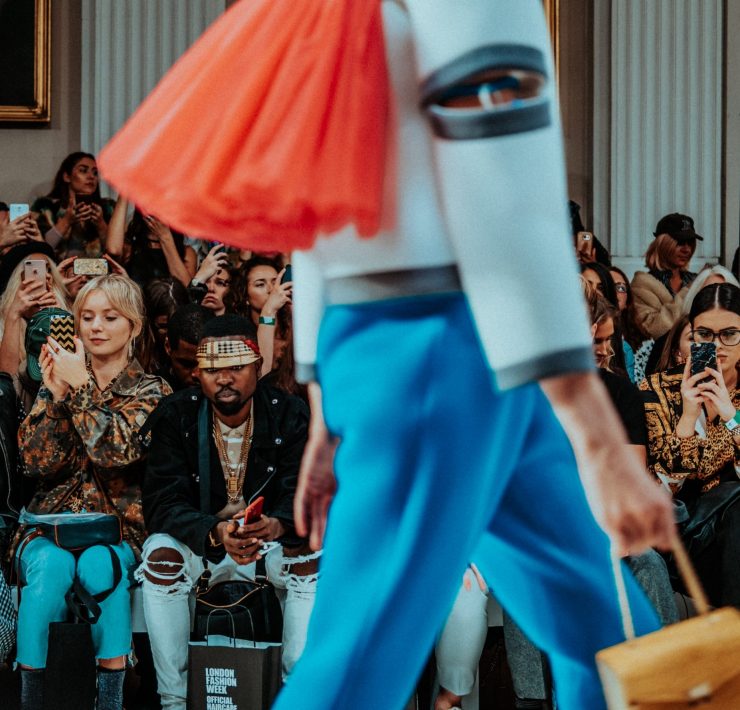Born in the age of the internet: this is the most common way of describing Generation Z, in other words, those born between 1997 and 2012.
Having grown up amidst smartphones and social media, Gen Zers are a truly digital-based generation. Unlike their predecessors, millennials, Gen Zers can rarely recall a time where the internet wasn’t a thing. Now, the oldest members of this cohort are in their early 20s and are about to leave behind academic life to enter the professional world and take on their role as independent consumers. As for the youngest ones, they exert a big influence on the shopping habits of their families. So, as Gen Zers grow, brands ought to grow with them, posing the question: how can brands appeal to this generation?
The rule of thumb when marketing to Gen Z is to have advertisements on every platform imaginable. Having grown up with a smartphone in hand, Gen Z’s real and online world often blends into one. Brands should bear this in mind by creating a seamless experience between the online and physical through adopting an omnichannel strategy. For example, British luxury brand Burberry tackles this challenge by having a 24-hour live chat available on their website. This gives consumers constant support, having any question answered at any time of the day, without having to leave their homes. This is, in its truest form, the migration of the luxurious shopping experience from brick-and-mortar to retail, as brands continue to blur the line between the physical and digital while crafting the shopping experience to what Gen Zers expect it to be.

Influencers
Additionally, brands should opt for an influencer marketing strategy that better appeals to this generation. Although macro-influencers were popular in the past, micro-influencers have a stronger impact on Gen Z, as they believe them to be more approachable, transparent, and trustworthy. With this change in influencer marketing, a McKinsey & Co partner, Emma Spagnuol, suggests that brands should build a community of micro-influencers who have a following of around 30,000. These personalities usually have a higher engagement rate, giving the notion of being regular people, unlike macro-influencers who may come across as unapproachable celebrities.
Values
Looking beyond the world of digital, it is crucial to understand what Generation Z stands for. Much like millennials, Gen Zers want their purchases to reflect their values, seeking brands that align perfectly with their belief systems. While the product itself was all that mattered for the baby boomer generation, millennials and centennials care more about what the brand stands for, including its mission and values. Just like it happens in the online world, these generations won’t stand for a lack of transparency. Being the most ethical and diverse generation to date (in the USA), Gen Zers have made social responsibility and supply chain transparency crucial for them and their purchase decisions. Moreover, Gen Zers appear to be extremely environmentally conscious, as they acknowledge humanity’s role in global warming and opt for more sustainable solutions.
Luxury
With regards to luxury, Emma Spagnuol assures that Generation Z is still very much willing to purchase these items. However, their perception of what luxury is might differ from the traditional one. Gone are the days of logo-mania, where a Gucci T-shirt gained its value by having the logo plastered on its front. For Gen Zers, the value of an item comes from its uniqueness. As consumers, they have a high desire for individuality, seeking one-of-a-kind items and other unique trinkets. If luxury shops offer these unique items, then Gen Zers are ready to spend their money.
And more…
In the end, if a brand wishes to connect with Gen Zers they have to present themselves with a current, ethical, and authentic background. Connecting with this generation, both in the online and physical world is of prime importance. This connection must be done wherever they are, be it out and about in the streets or scrolling through their social media feed. Brands should also aim to be as unambiguous as possible, reflecting total transparency and concern for the world’s current challenges. Overall, establishing an emotional connection through the brand’s mission and values will attract loyal Gen Zers.
However, as with everything these days, we have to take into account the Covid-19 pandemic and its effect on Gen Z’s behavior as consumers. While a year and a half ago, the oldest Gen Zs were taking their first professional steps in a solid economy, the story is completely different now. In 2020, we began to feel the first economic impact of the virus, but the recession is bound to hit hard in 2021. Research tells us that young workers were the most affected by the economic turmoil, with many facing unemployment or a lack of available jobs. That being said, in the future, brands should analyze how Covid-19 impacted Gen Z, its viewpoints, and behavior as shoppers and keep it in mind during the next shift in marketing.













